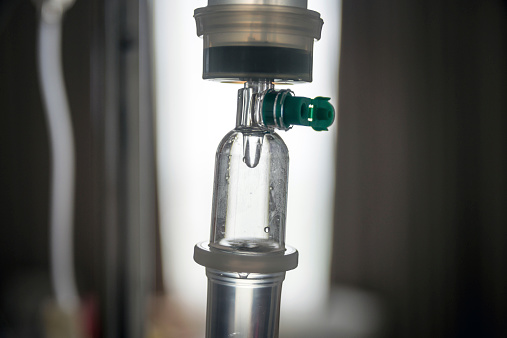The case of Cassandra C., a 17-year-old in Connecticut who refused to continue receiving chemotherapy to treat her Hodgkin’s lymphoma, poses a genuine ethical dilemma. The dilemma stems from a conflict between two leading ethical principles. One principle, respect for autonomy, calls for respecting individuals’ right to self-determination. In the medical context, that means allowing people to refuse medical treatment, even lifesaving therapy. The other ethical principle, beneficence, directs physicians and hospitals to maximize benefits and minimize harms in caring for patients.
The problem in Cassandra’s case is that she is still legally a minor, which means that a parent or guardian has the legal authority to make healthcare decisions on her behalf. But unlike problematic cases in which parents and their offspring disagree about medical treatment, Cassandra’s mother upheld her daughter’s refusal of treatment.

Court Decisions to Date
Courts have the authority to overrule parents when their medical decisions threaten the life or health of their offspring. In such cases, temporary custody is removed from the parents and a specific guardian (termed a “guardian ad litem”) is appointed to make medical decisions for the minor.
On January 8, 2015, the Connecticut Supreme Court upheld a lower court decision and ruled that Cassandra must continue to undergo chemotherapy against her will. Separate lawyers for the mother and daughter sought to have the teen considered a “mature minor,” which would grant her the right to refuse lifesaving treatment, but the court declined to rule on that aspect, siding with the medical judgment that there is an 85 percent chance of surviving Hodgkin’s lymphoma by treating with chemotherapy.
Years ago at Albert Einstein College of Medicine we had a neonatal ethics committee that advised physicians in ethically troubling cases. A leading principle used in the committee’s deliberations was the following: “Parents are presumed to be the decision-makers for their children unless their decision is clearly against the best interest of the child.” The committee spent considerable effort seeking to determine when a parental decision was clearly against the infant’s best interest. Newborns and young children cannot make such judgments for themselves, but what about a teen who will reach the age of majority within a year?
Exploring the Ethics
The legal barrier to respecting Cassandra’s autonomy remains, but the ethics of the case are murky. If this were a one-shot treatment—perhaps painful or uncomfortable but over quickly—it would be easy to conclude that forced medical treatment would do more good than harm. But that is not clearly the case when the patient has to endure for as long as six months the discomforts of chemotherapy.
In December Cassandra first underwent surgery to install in her chest a port through which the drugs would be administered. State officials took custody of Cassandra and confined her in the hospital, Connecticut Children’s Medical Center, where she has received the forced treatments. Her cell phone was taken away (for a teen, this may be worse than the nausea and vomiting) and the phone in her hospital room was also removed. Her mother has been allowed to visit her in her hospital room, but only with a child welfare worker present. Mother and daughter are not allowed to have contact by phone.
In an op-ed piece published in the Hartford Courant, Cassandra said that the Connecticut Department of Children and Families had had her medically evaluated and placed in a foster home until the court date. Describing her ordeal once she was confined to the hospital for the forced treatment, she wrote: “I was strapped to a bed by my wrists and ankles and sedated.”
Uncertain Resolution
There is no way of knowing what Cassandra will say if she is eventually cured of her cancer. She might be grateful that her life was saved, and thank the doctors and the hospital for involving the courts to force the chemotherapy. Or she might remain resentful, claiming that her autonomous right to refuse medical treatment was violated. But whatever she might say, her judgment in the matter does not resolve the ethical dilemma. She is still legally a minor, but that does not ethically justify the actions of the doctor, the hospital, the child welfare agency and the Connecticut courts. Although reasonable people may disagree on whether a 17-year-old should be forced to undergo medical treatment against her will, we should not condone the brutality involved in placing this young patient in a foster home, sedating her and strapping her down in a hospital bed. The philosopher Immanuel Kant wrote that “whoever wills the end, wills the means.” However, even those who initially support a plan to force treatment on a young patient are morally bound to question the means required to do so.


Comments on this entry are closed.
No one should be forced into chemo treatments even if its to save their lives. I’ve been going thru treatments and and just 2 1/2 years ago I started chemo treatments then decided it was killing me instead and got off of it against doctors orders that it would have help save me. I’m still here battling cancer and have for the last 11 years at fox chase in PA til this day. I understand how she feel but life is precious and should be left up to the person that’s living it. You don’t have to keep doing chemo to maintain your life but there are other alternative to dealing with cancer unless your in a stage where there is no other options. Keep fighting for your life and rights to live.